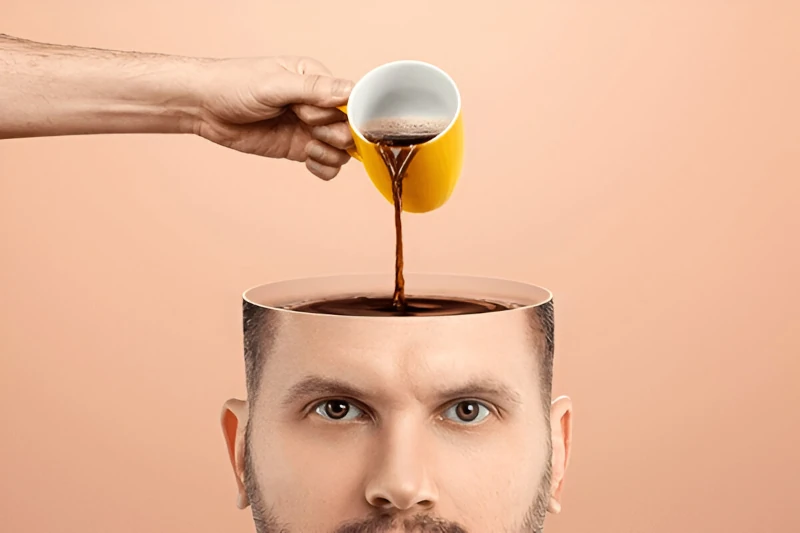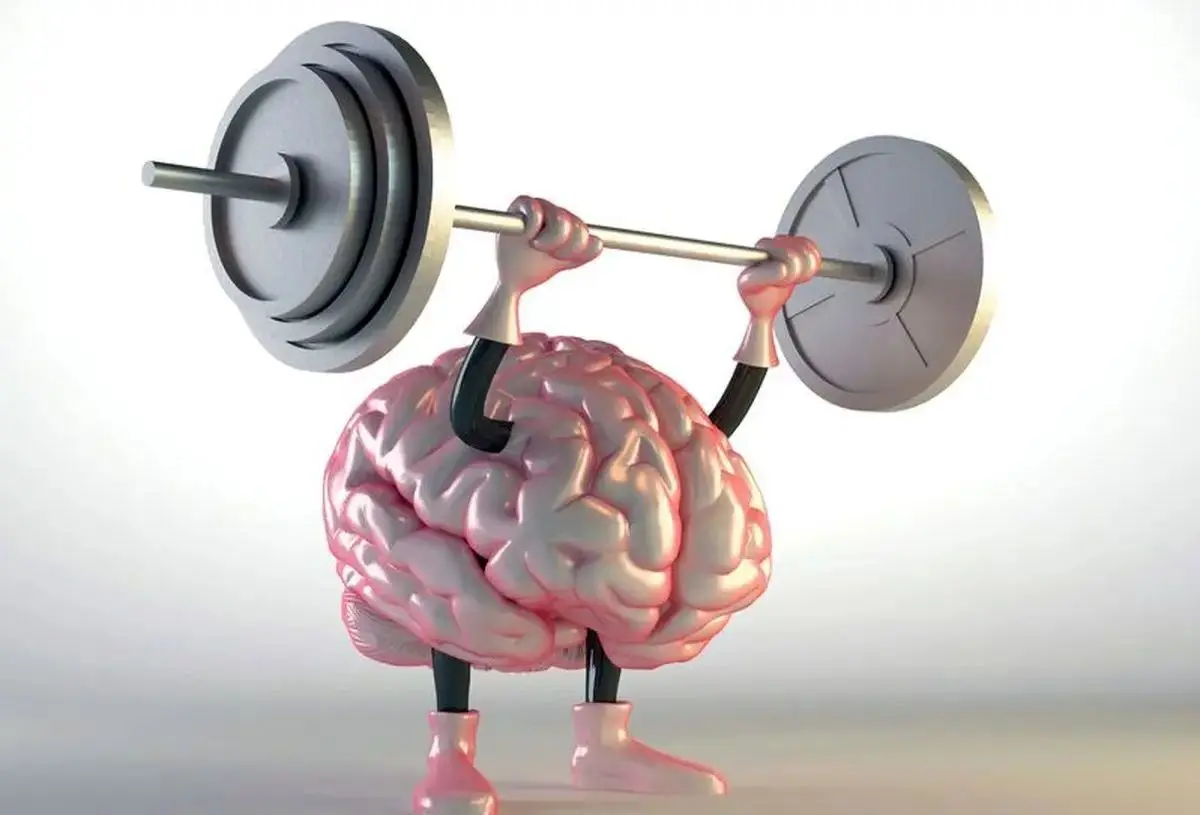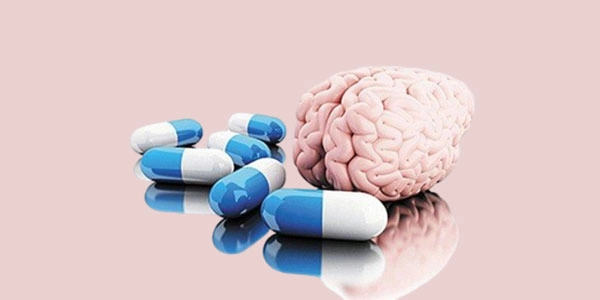جدول محتواها
In today’s fast-paced world, staying mentally sharp and focused is more important than ever. Whether you’re tackling a demanding work project, preparing for an exam, or simply navigating daily tasks, the quest for enhanced brainpower is universal. One substance that has stood the test of time in this pursuit is caffeine. But what makes caffeine such a popular choice for boosting cognitive function?
Caffeine and mental performance are deeply intertwined. This natural stimulant, found in coffee, tea, and various supplements, works by blocking adenosine receptors in the brain, preventing feelings of fatigue and promoting alertness. As a result, caffeine consumption often leads to improved focus, better memory retention, and increased mental energy.
But using caffeine to optimize mental and physical performance requires more than just grabbing a cup of coffee. The effects of caffeine can vary based on dosage, timing, and individual tolerance. While some experience a significant boost in concentration and productivity, others may face unwanted side effects like jitteriness or disrupted sleep.
So, how does caffeine truly impact the brain? And is it the best solution for long-term cognitive enhancement? In this article, we’ll explore the science behind caffeine and mental performance, discuss its benefits and potential downsides, and introduce a natural, caffeine-free alternative for sustained mental clarity.
What Is Caffeine and How Does It Affect the Brain?
Caffeine is a natural stimulant that primarily affects the central nervous system, delivering a noticeable boost in alertness and focus. It works by blocking adenosine, a neurotransmitter responsible for promoting sleepiness, which results in increased neural activity and the release of dopamine and norepinephrine—two chemicals essential for attention and mood regulation.
But does caffeine increase mental performance? Research suggests that moderate caffeine intake can indeed enhance cognitive functions like memory, concentration, and reaction time. However, the effects can vary depending on factors such as dosage, individual sensitivity, and regular consumption habits, making it essential to use caffeine strategically for optimal brain performance.
The Cognitive Benefits of Caffeine
Caffeine is widely recognized for its positive effects on cognitive function, particularly when consumed in moderate amounts. Here are some key cognitive benefits associated with caffeine:
- Enhanced Focus and Attention: Caffeine helps improve concentration by stimulating the release of dopamine, which plays a crucial role in attention regulation. This makes it particularly useful during tasks that require sustained mental effort.
- Improved Memory Performance: Studies indicate that caffeine can enhance both short-term and long-term memory by modulating brain activity in areas responsible for memory consolidation.
- Increased Mental Alertness: By blocking adenosine receptors, caffeine keeps the brain in a more alert and awake state, reducing feelings of mental fatigue.
- Faster Reaction Times: Caffeine’s stimulating effects on the central nervous system can improve reaction times, which is beneficial in activities that require quick thinking and responsiveness.
The relationship between caffeine and mental performance has been extensively studied, with research supporting its ability to sharpen cognitive abilities when used appropriately. However, it is essential to balance intake to avoid potential side effects like anxiety or disrupted sleep.
The Optimal Caffeine Dosage for Mental Performance

Determining the optimal caffeine dosage for mental performance depends on various factors, including age, body weight, tolerance, and individual sensitivity. Research suggests that moderate doses, typically ranging from 100 to 200 milligrams (equivalent to about one to two cups of coffee), are most effective for enhancing alertness, focus, and cognitive performance.
But does caffeine improve mental performance for everyone? While many individuals experience significant cognitive benefits, excessive consumption can lead to adverse effects like restlessness, anxiety, and disrupted sleep patterns. Therefore, finding a personalized caffeine intake level and avoiding overconsumption is essential for maximizing mental performance without unwanted side effects.
The Downsides: When Caffeine Can Harm Your Brainpower
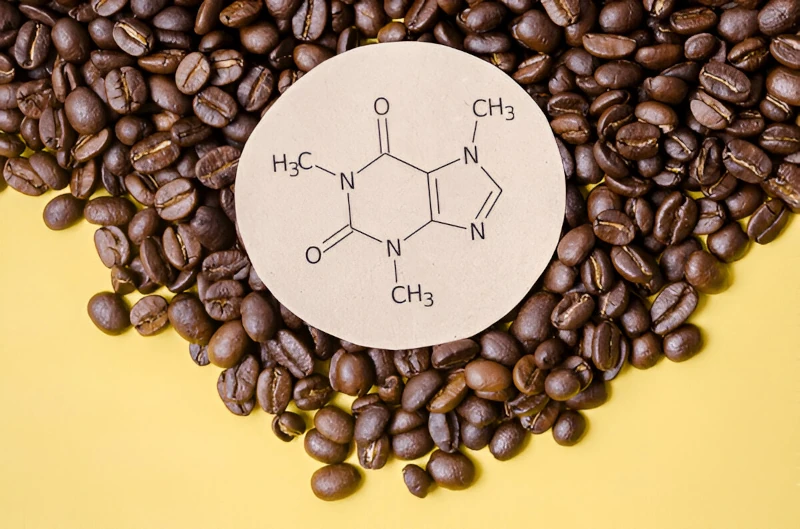
While caffeine can offer significant cognitive benefits, excessive or improper use can negatively impact brain function. Here are some potential downsides to consider:
- Increased Anxiety and Nervousness: High caffeine intake can overstimulate the nervous system, leading to heightened anxiety, irritability, and even panic attacks in sensitive individuals.
- Disrupted Sleep Patterns: Caffeine has a half-life of several hours, which means consuming it later in the day can interfere with the brain’s natural sleep cycles, ultimately impairing memory and concentration.
- Dependence and Tolerance Development: Regular caffeine consumption can lead to tolerance, requiring higher doses to achieve the same mental performance, and withdrawal symptoms like headaches, irritability, and brain fog can occur when intake is reduced.
- Reduced Long-Term Cognitive Efficiency: While caffeine can temporarily enhance focus and alertness, relying on it as a primary cognitive booster can disrupt the brain’s natural ability to manage energy levels effectively.
The relationship between caffeine and mental performance is complex, and while moderate use can be beneficial, excessive or habitual consumption may compromise brain health and overall cognitive function in the long run.
Beyond Caffeine: How to Naturally Support Cognitive Function
While caffeine can provide a temporary boost in alertness and concentration, long-term cognitive performance requires more than just a morning cup of coffee. A well-rounded lifestyle with adequate sleep, regular physical activity, and a nutrient-rich diet plays a crucial role in sustaining brain health. Key nutrients like Omega-3 fatty acids, B vitamins, and antioxidants support memory, focus, and overall mental clarity. Additionally, supplements containing natural nootropics, such as L-theanine and Rhodiola Rosea, can enhance cognitive function without the potential side effects of caffeine.
Understanding the balance between caffeine and mental performance is essential; while caffeine may offer short-term benefits, prioritizing long-term brain health through natural, sustainable methods ensures consistent mental sharpness and energy.
Introducing Lilia Neuro Care: Your Brain’s Natural Boost
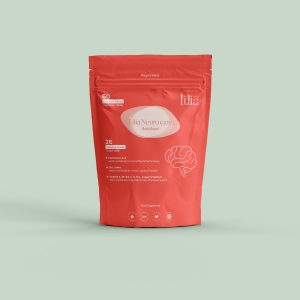
If you’re looking for a reliable, caffeine-free way to enhance your cognitive performance, Lilia Neuro Care offers a natural and effective solution. This advanced brain health supplement is carefully formulated with scientifically backed ingredients like Ginkgo Biloba, Bacopa Monnieri, and essential vitamins to support memory, focus, and mental clarity. Unlike caffeine, which provides temporary stimulation and can lead to crashes or jitters, Lilia Neuro Care delivers long-term cognitive benefits without unwanted side effects.
Whether you’re preparing for a busy day at work, studying for exams, or simply aiming to stay mentally sharp as you age, this supplement helps you unlock your brain’s full potential. Discover how Lilia Neuro Care can naturally elevate your mental performance—without the caffeine rollercoaster. Learn more here.
Conclusion
In conclusion, caffeine has long been a popular choice for boosting alertness, focus, and mental energy. While research supports its ability to enhance certain cognitive functions, the answer to the question, “does caffeine increase mental performance?” is not universally straightforward.
Caffeine can provide temporary improvements in concentration and memory, but its effects are often short-lived and may come with side effects like anxiety, dependency, and disrupted sleep. For those seeking a more balanced and sustainable approach to cognitive enhancement, natural supplements like Lilia Neuro Care offer a powerful alternative. By nourishing the brain with essential nutrients, it supports mental performance without the crashes or jitters associated with caffeine.
FAQs
Does caffeine increase mental performance?
Yes, caffeine can temporarily enhance mental performance by improving focus, alertness, and memory. However, its effects vary based on dosage and individual sensitivity.
How does caffeine affect the brain?
Caffeine blocks adenosine receptors in the brain, reducing feelings of fatigue and increasing neurotransmitters like dopamine, which boost concentration and mood.
What are the potential downsides of caffeine for mental performance?
Excessive caffeine intake can cause anxiety, disrupted sleep, dependency, and reduced cognitive efficiency over time.
Is there a natural alternative to caffeine for better mental performance?
Yes, Lilia Neuro Care offers a caffeine-free solution with brain-boosting ingredients that support memory, focus, and mental clarity without the side effects of caffeine.
